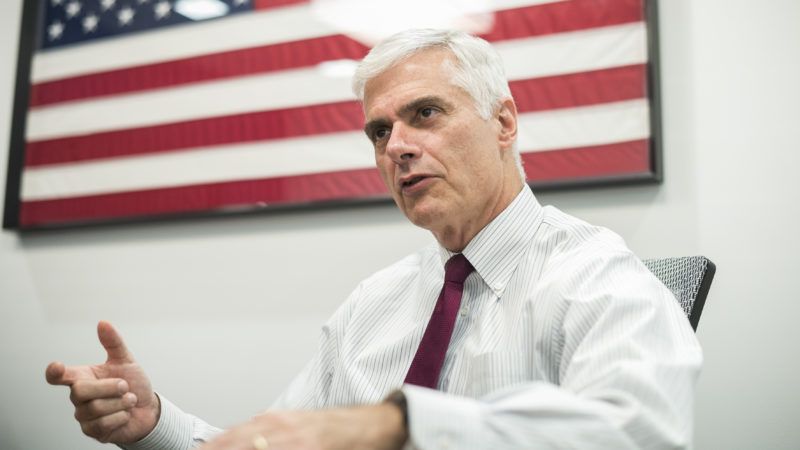Are There Fiscal Conservatives in a Pandemic? The Club for Growth Says It Doesn't Matter.
The Club for Growth prides itself on holding lawmakers accountable "by publicizing their voting record." Except, well…not right now.

On its website, the Club For Growth describes itself as "the only organization that is willing and able to take on any member of Congress on policy who fails to uphold basic economic conservative principles…regardless of party."
The Club does indeed have a long track record within conservative politics. It was the tea party movement before there was a tea party movement; the rare D.C. organization that cared more about who was paying for the government than who was getting paid by it. The Club made its name by providing grassroots activists with congressional scorecards and candidates with a sought-after endorsement for abiding by the principles of low taxes, balanced budgets, and smaller government.
The Club prides itself on "exerting maximum pressure on lawmakers to vote like free-market, limited government conservatives," as the organization's website explains. "And when they don't, we hold them accountable by publicizing their voting record."
Except, well…not right now.
The Club for Growth is not including last week's vote on the $2.3 trillion Coronavirus Aid, Relief, and Economic Security Act (CARES Act) in its annual congressional scorecard. The bill passed the Senate without a single dissenting vote and cleared the House on a voice vote after Rep. Thomas Massie's (R–Ky.) effort to require a roll-call vote was thwarted.
David McIntosh, president of the Club for Growth, said in an interview with Morning Consult that the group chose not to include the vote in its scorecard because "we understand the politics of needing to show the public we're doing everything we can." (Update: The Club for Growth did issue some "key vote alerts" about aspects of the CARES Act as it was being crafted, and published guidelines for lawmakers to follow in drafting a coronavirus-response spending package.)
As Morning Consult's Eli Yokley observes, that's pretty much how conservatives are reacting across the board. Prominent conservative groups are refusing to criticize Republican lawmakers and President Donald Trump for the massive spending package, and polling shows fewer than 1 in 10 Republican voters disapprove of the measure's passage.
That tells you something about the current state of the conservative movement. When the last Republican president signed the $700 billion Troubled Asset Relief Program (TARP), otherwise known as the 2008 bank bailout, polling from Gallup found that fewer than half of all Republicans supported it. When President Barack Obama signed the American Recovery and Reinvestment Act, the $833 billion stimulus passed in the wake of the last economic collapse, only about 30 percent of self-identified conservatives approved, Gallup found.
Now, we're spending a whole lot more money with a whole lot less opposition.
As Reason Editor at Large Matt Welch put it last week: "There is no more politics of fiscal prudence in America, just a competition to see who can wag the biggest firehose."
If fiscal conservatism still held any cache among Republican lawmakers, voters, and activists, there would have been an outcry about President Donald Trump and Republicans in Congress inflating the deficit to record highs over the past three years. It wasn't all that long ago that grassroots conservatives were toasting the toppling of high-ranking Republicans for lesser slights.
If it meant anything, the Club for Growth wouldn't have sided with a deficit-hiking president in his blood-feud with Rep. Justin Amash (I–Mich.). It wasn't all that long ago that the Club for Growth was pouring money into Amash's campaign coffers, probably because he owns a 98 percent lifetime rating on the group's scorecards—you know, the ones that apparently don't matter anymore.
The CARES Act was never going to be stopped by token opposition from the Club for Growth or its fellow travelers in the formerly influential circles of fiscal conservatism. That's not the point. Holding people accountable doesn't always mean they lose their jobs. But there is value in keeping voters informed, even if only as a way to deter future votes on similar measures. The lawmakers who voted for the CARES Act would be free to explain to voters why it was necessary to hand $60 billion—$32 billion in straight cash—to America's airlines to stop COVID-19. Voters would decide as they will.
"We hold them accountable by publicizing their voting record," is what the Club promises to do. And when you don't do that thing—you had literally one job—it sends a signal about priorities that unfortunately run a lot deeper than a single vote.


Show Comments (66)